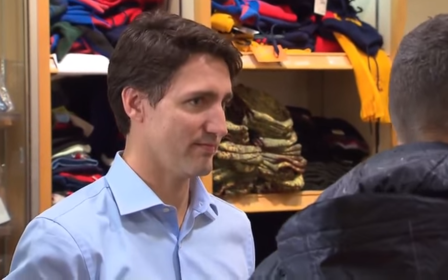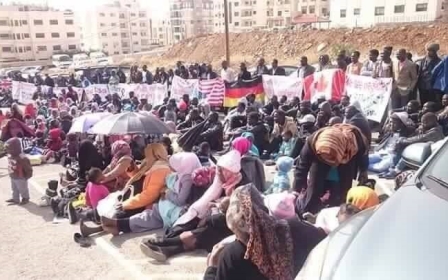First 1,000 Syrian refugees arrived in UK, says PM

The first 1,000 Syrian refugees have arrived in the UK as part of a government scheme to resettle vulnerable people living in camps, Prime Minister David Cameron said on Wednesday.
More than 50 local authorities are expected to take in refugees, as part of the 20,000 the British government has pledged to take in over the next five years.
The refugees are being settled in parts of nothern and southern England, areas of Scotland, and Belfast in Northern Ireland.
Britain has opted out of EU quotas for taking migrants and dispersing them around the bloc. Cameron has resisted pressure for Britain to do more amid calls to share the burden in Europe's biggest migrant crisis since World War II, which has put pressure on frontline states.
Germany, by comparison, is expected to record one million asylum-seeker arrivals this year, and much smaller Netherlands 60,000.
Under a government scheme, the refugees are given five years humanitarian protection status, free housing and social welfare, as well as permission to work from the day they arrive.
Lisa Doyle, the head of advocacy at the Refugee Council, welcomed the news, telling the BBC that the refugees would have their lives "transformed, if not saved" by the programme.
About 15 Syrian families were resettled last month on Bute in western Scotland.
According to AFP, some locals were sceptical as to whether the Syrians would stay and others harbour darker concerns, reflecting wider preoccupations about Syrian refugees in Europe and the United States.
Craig Borland, the editor of The Buteman weekly paper, said there was "a fear of the unknown" in the predominantly white, Christian community but that "an overwhelming majority" had welcomed them.
Belfast also accepted scores of refugees on Tuesday. A small anti-refugee protest was overwhelmed by a pro-refugee crowd.
Sinn Fein’s Alex Maskey, the chairman of the Department of Social Development’s parliamentary committee at the Northern Ireland assembly, said the refugees would need peace and privacy.
“First of all there is the privacy, there is also the actual need to be able to process in peace and quiet,” he said. “There will obviously be wellwishers who will also probably want to be there as well, but that is not what we want at this stage of the game.
“The security issue is one which would be in the back of people’s minds but it wouldn’t be a predominant fear, I think.”
Stay informed with MEE's newsletters
Sign up to get the latest alerts, insights and analysis, starting with Turkey Unpacked
Middle East Eye delivers independent and unrivalled coverage and analysis of the Middle East, North Africa and beyond. To learn more about republishing this content and the associated fees, please fill out this form. More about MEE can be found here.




